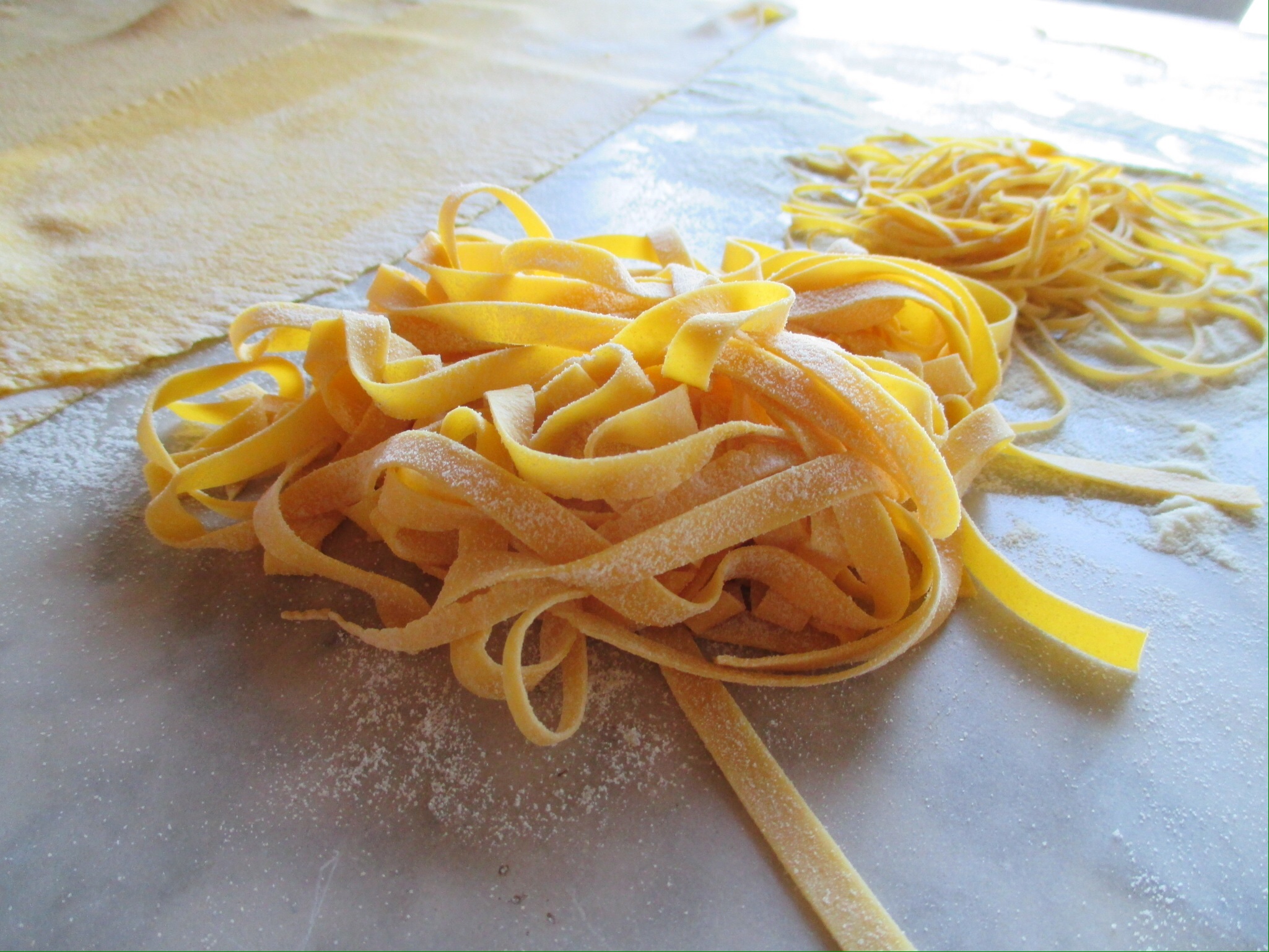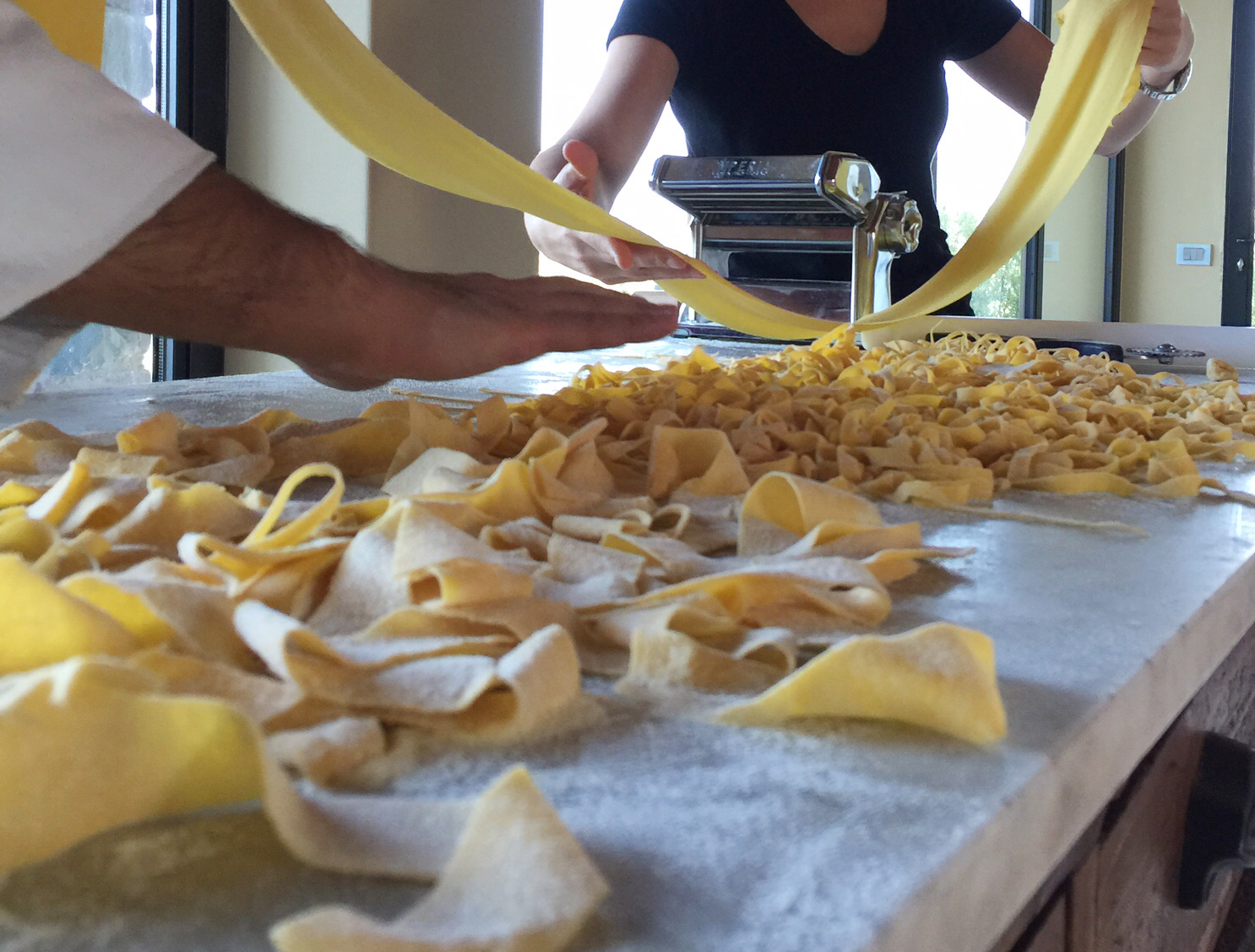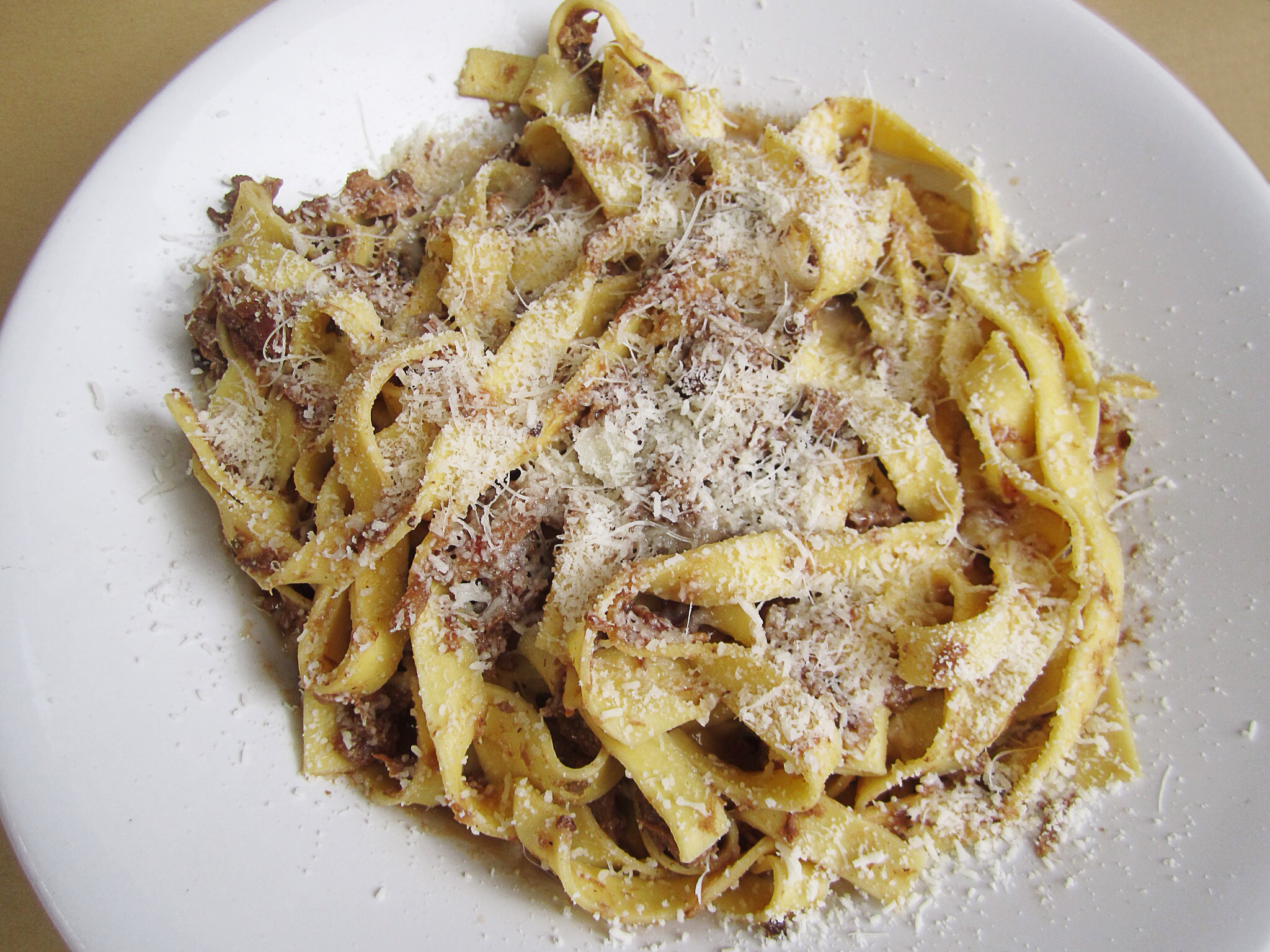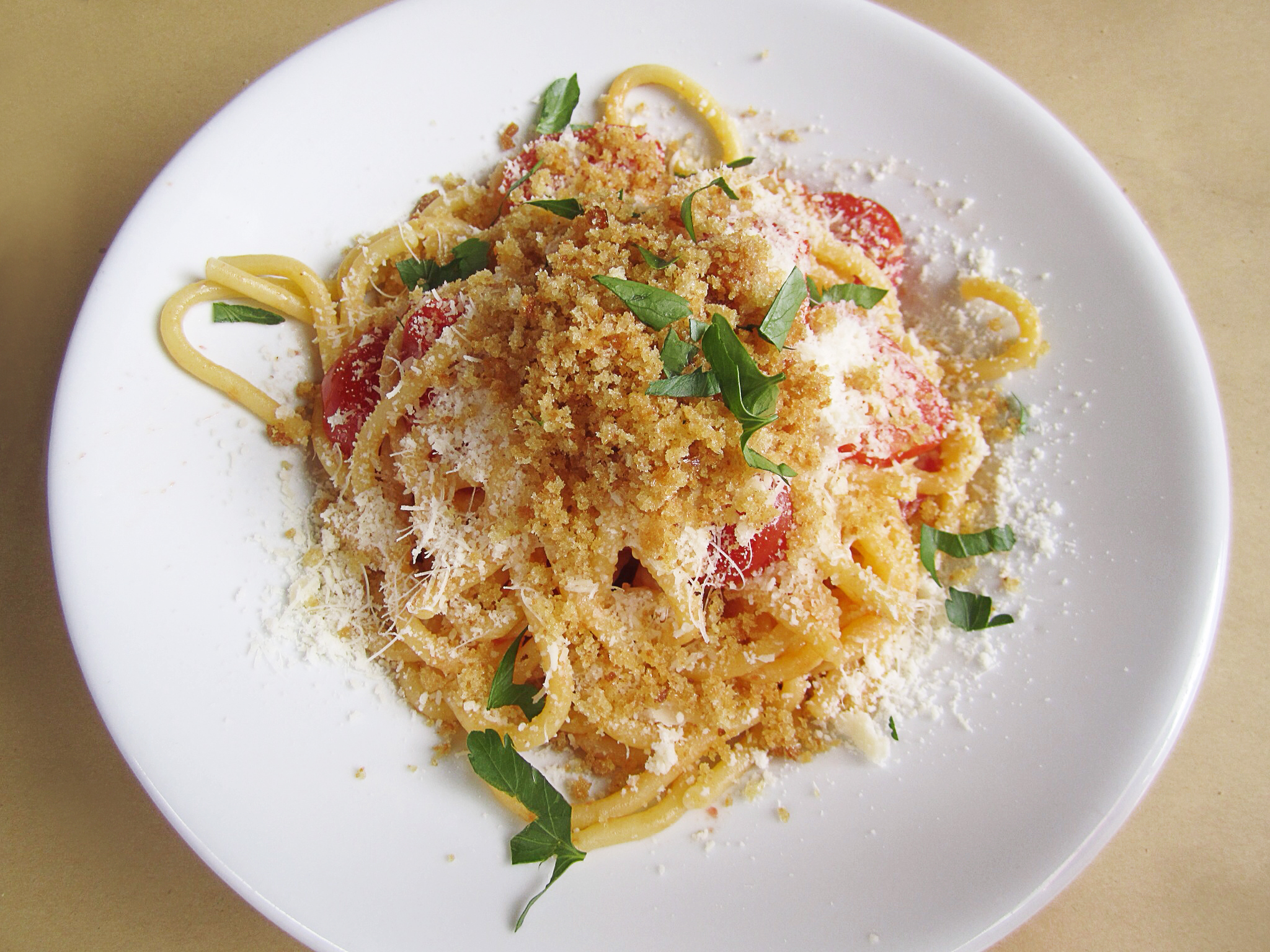Pasta Magic in My Fingertips: Finding Perspective in a Professional Kitchen




By Emma Kobolakis
I became smitten with pasta shapes when I watched my first chef roll out conch-like cavatelli with the blunt end of a butter knife. She had decided to show us lowly line cooks what could be done with a few nimble movements in the quiet moments before dinner service. I asked for a turn. My clumsy attempts yielded nothing usable, but I was hooked. And as it is in most kitchens, if you express a desire to do the work, the work becomes yours. Thus, “pasta production” was added to my growing list of daily duties.
We had a sturdy Italian pasta machine that had clearly seen better days, and I soon learned to feed it square chunks of yolk-rich dough and pull through sheets longer than my arms and as thin as my skin. These became the foundation for lasagnas with at least a dozen layers repeating until the pans were three-quarters full. Slicing into them was an event. Serving them, even more so. We blitzed through several of those striated wonders a night. They were the lynchpin of familiarity in a menu that changed daily.
I coaxed slender tagliatelle, fatter fettuccine and thicker skeins I’d cut by hand for pappardelle. On more than one occasion, dinner service hit an unexpected fever pitch and we suddenly needed more pasta, now, now! I calmly excused myself to the stainless steel pasta bar where a captive audience of diners would sit and watch me work.
It never took more than a few minutes; a sprinkling of semolina on the dry, cold surface and several deft slices of a sharp rolling wheel. I’d pinch-twirl the dough into bundles, forgoing a scale for the sake of feel. A spirited wipedown erased any evidence that I was ever there, save for the flour on my apron and and a sense of relief after I delivered my bounty to the kitchen.
Once I left that restaurant, the magic I had felt stayed behind.
I was delivered unto my second restaurant job from the benevolent hands of that first chef. She sent me in response to an open call for cooks, and I was placed on pasta from day one. I learned quickly that execution was entirely different from production. Staring down eight flaming burners and a boiling cauldron of water, I felt new flavors of sweat beading on my brow. Much like the lasagna at my last job, pasta anchored the menu, making up a solid third of its dishes.
It wasn’t long before my new position started to feel like a jail sentence, and not just because I was crammed in the corner of the kitchen between a stove and a lowboy. It was more because I felt I'd never be able to escape. The chef was demanding, exacting, and I could rarely finish a dish to his standards. Everything was critiqued: the way I held my tongs, the way I plated, the way I breathed. His criticisms hit me in my gut, which was almost always full of half-digested globs of starch from tasting multiple times during a fourteen-minute pickup.
I obeyed every command. I stood up straighter. Swirled with closed tongs. Plated with a gentle hand. Used both hands at once. It didn’t help. I could feel his eyes boring into my back while I worked. Never before had I experienced the impulse to jump towards the flames. One night, when we were down a cook, Chef was too busy working two stations at once to grill me. That night, every dish came out perfectly. I didn’t miss a pickup, I plated flawlessly, and for once, Chef’s standards were met. He was stunned. He sought me out the next day to compliment me on my performance. I couldn’t even muster a smile.
You see, I had made a fundamental error. I assumed it was innate knowledge stored in my fingertips that allowed me to transition into pasta production barely breaking a sweat. And given that knowledge, I further assumed anything pasta-related would come easily. I discounted the galvanizing effects of my first nurturing, encouraging environment just as I wrote off the poisonous effects of the far more toxic second. I was the same cook, with the same skills, stuck in the wrong kitchen. Any magic I thought had dwelt in my instruments was really the alchemy between the right leader and an eager pupil. Unfortunately, I didn’t realize that until long after I had left.
Once I learned my lesson, it was profoundly freeing. There was no limit to my skill, only my willingness to learn. I was not responsible for placating a chef, or person, who set impossible standards. Nor would I be undone by something as bland as inert starch. Proteins are just proteins, vegetables are just vegetables, and pasta, comforting, satisfying, and elevated as it can be, is just pasta.

